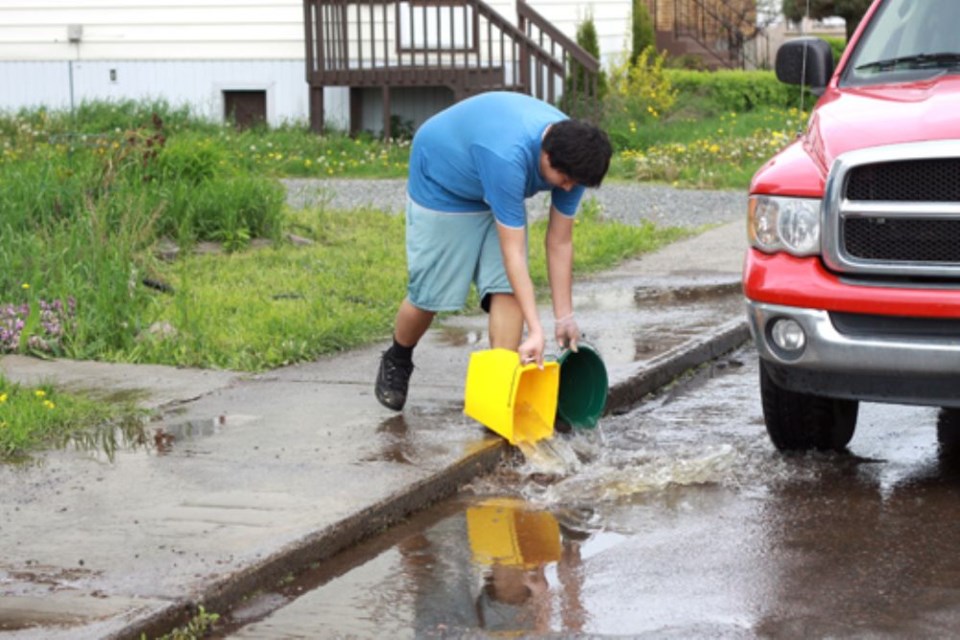THUNDER BAY -- If people had complied with a bylaw, the city says its sewage treatment plant wouldn't have failed during the flood of 2012.
In its defence against a $300 million class-action lawsuit claiming the city was negligent when the Atlantic Avenue Water Pollution Control Plant failed and flooded on May 28, 2012, the city says people had been told twice to disconnect downspouts from sewers but didn't, directly contributing to the amount of water the plant saw that night.
"A very significant portion of the volume of water which arrived at the plant was as a result of the property owners' failure to comply with the city's By-law, and which thereby increased the number of basement flooding occurrences and the severity of such flooding," the city's defence claim states.
"Had the property owners properly disconnected or removed their rainwater leaders, the plant would not have failed at all."
The lawsuit says that the city is responsible for those homeowners disconnecting from sewers.
The lawsuit, filed by five homeowners who say, along with basements flooded with sewage, they're property value has dropped, possessions were lost and injuries were sustained, because of the city's failure to inspect, staff and operate the plant during the flood.
The city says the region was hit with an historic amount of rainfall, especially intensity, which the plant couldn't handle. The suit claims the plant has seen similar amounts of rain several times since it began operating in the 1970s.
Over a 24-hour period, the storm isn't even in the top 30 the region has seen since 1970.
"When ranked by rainfall intensity over 1, 2, 4, 6 and 12 ours, the rainfall event does not fall within the top two storms in Northern Ontario, and is only in the top five ranking in the 2 and 4 hour rainfall categories," the statement of claim says.
The city's says the ground was already saturated after the city saw several days of rain leading up to May 28. While it admits some homes flooded as a result of the sewage plant, a lot of the flooding was due to other causes and completely unrelated like surface water and storm sewer backup along with cracked foundations and weeping tile issues.
"In fact, many of the homes flooded and experienced sewer backup prior to the failure of the WPCP," the city says.
